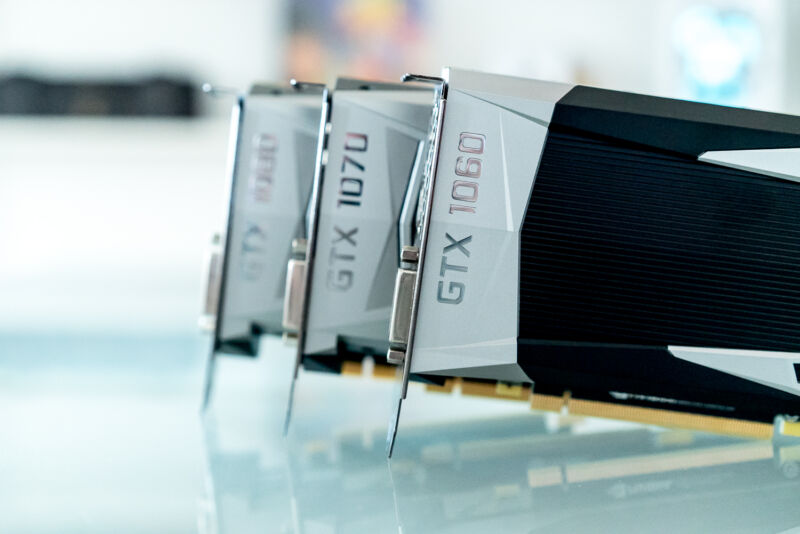Enlarge / Nvidia’s GTX 1060 is still one of the most-used GPUs on Steam, but its star continues to fade slowly. (credit: Mark Walton)
Nvidia’s GeForce GTX 1060 was exceptionally well-reviewed when it was released in 2016—offering performance a bit better than previous-generation flagships for a downright reasonable price of $250. PC gamers responded accordingly. Within a year of its release, the 1060 became the most-used GPU in Steam’s Hardware and Software Survey, a position it occupied from June 2017 until October 2022.
The 1060 owes its longevity to a unique combination of factors—its original value, plus a years-long GPU shortage and inflated pricing for newer models like the RTX 3050 and 3060. But its long reign finally ended in November’s data, where the midrange GeForce GTX 1650 finally unseated the 1060. (The same shortage and pricing issues that kept the 1060 on top for so long have also contributed to the 1650’s continued availability and viability four years after its release.)
The nature of Steam’s stat gathering makes its data inherently noisy; it can only capture data volunteered by users who happen to open and use Steam while the data is being collected. This makes it useful for identifying broad trends over time—CPU and GPU market share, the number of CPU cores in most systems, the rough adoption rate of new Windows versions—but not quite as good at measuring data points as specific as “which individual GPU is the most popular?” The GTX 1060 actually gained share in the Steam data for September and October, which strikes us as not particularly likely given the age of the 1060 and steadily improving availability and pricing for newer models.
Read 2 remaining paragraphs | Comments

